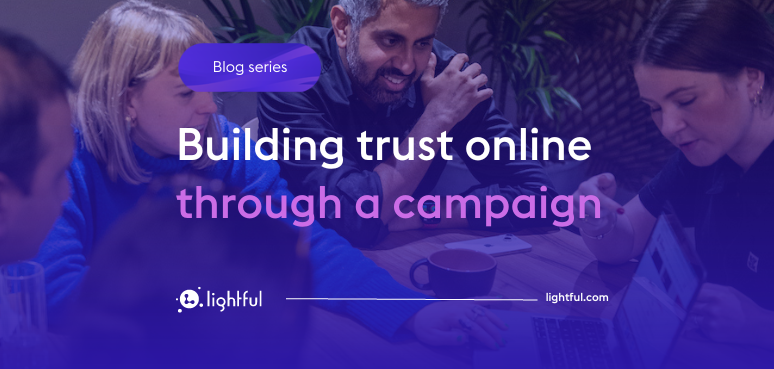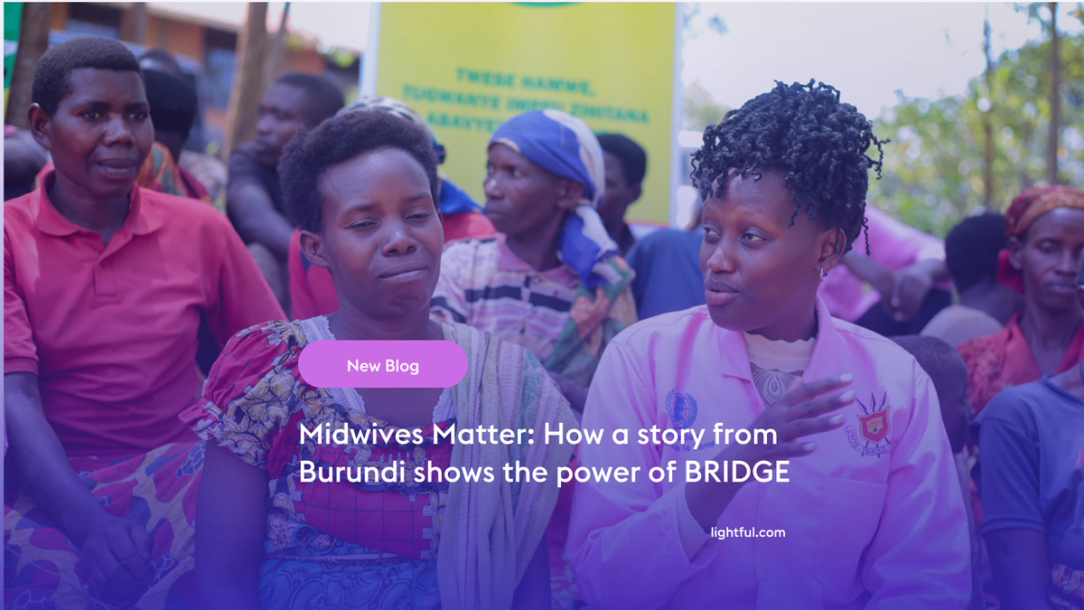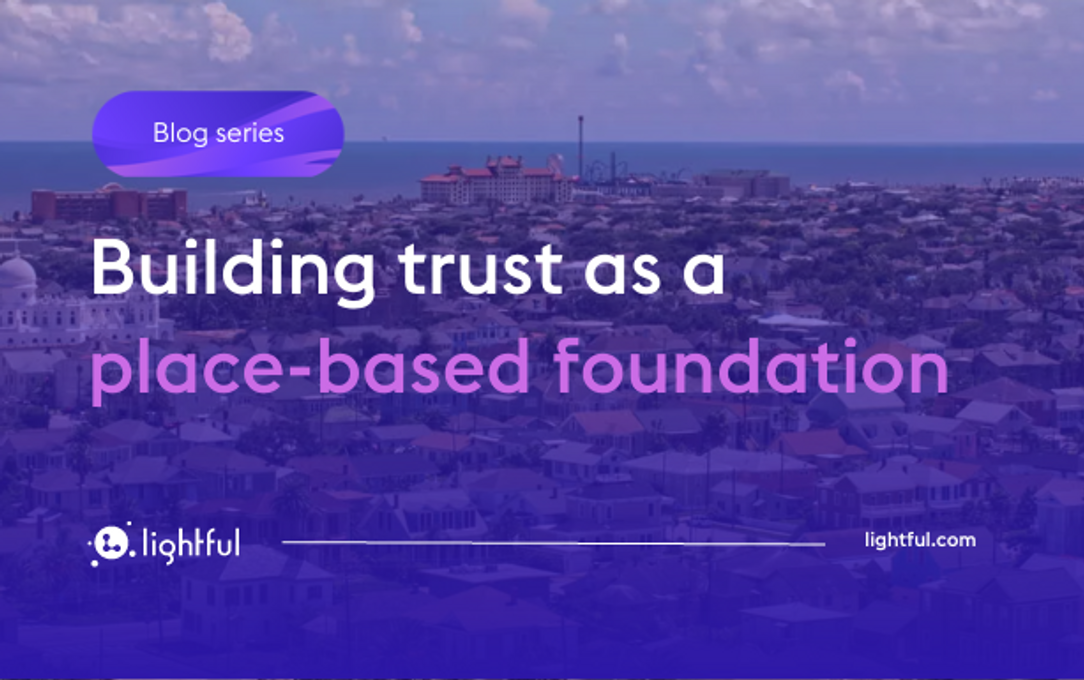How to build trust online through a campaign

How can nonprofits use online campaigns to build trust?
Trust is essential for nonprofits. Having the audience’s trust allows an organisation to gain credibility and appeal to new donors while it also makes it easier to cultivate a long-term relationship with existing supporters.
It’s no surprise that according to Edelman’s Trust Barometer, NGOs are seen as the most competent and effective drivers of change. In another survey by the Charity Commission, trust in charities remains higher than most other parts of society (with only doctors coming higher). People trust that they can make a difference.
However, gaining trust is not a one-off activity. It’s a continuous process that should be part of an organisation’s strategy to engage with their audience.
The pandemic has pushed many nonprofits to become more digital – from moving their services online to using their online channels to communicate with their supporters. There was no other option but to explore new (or improved) ways to stay in touch with their beneficiaries, their volunteers, or even their own team.
Although this was a challenge for many nonprofits, it was also an opportunity to broaden their perspectives and connect with people all over the world. Overcoming geographical limitations allowed them to reach a wider audience and build new partnerships.
Now nonprofits have kickstarted their digital journey through the pandemic, it’s a good time for them to explore how the increased use of digital channels can help them deepen their relationships with their supporters and donors.
This is where online trust-building comes in.
Launching an online campaign, or joining an existing movement, is not only useful for tangible goals such as driving donations or engagement, but it can also contribute to building trust with key audiences.
In this blog, we are looking at the link between trust and online campaigns and how nonprofits can use digital platforms to engage their audiences.
Why join an awareness campaign?
An online campaign can drive awareness, engagement, fundraising or all of them at once if done correctly. For nonprofits planning their own campaigns, it’s important to start with the key objectives that will help them shape a campaign.
For example, an environmental organisation might launch a campaign to promote their work and reach a new audience. The main objective is to increase their reach on Instagram and grow their followers. They could also have secondary objectives, such as boosting their engagement or attracting new donors.
There is also the option for organisations to join existing campaigns and awareness days that are all about collective action, such as #InternationalWomensDay, #EarthDay, #GivingTuesday, #ReclaimSocial amongst others.
We first launched #ReclaimSocial in 2018 as an awareness campaign to make social media more positive. Thousands of charities and individuals joined on the day so we decided to make it an annual awareness campaign called #ReclaimSocial day. Over the last 5 years, the campaign has had more than 200 million impressions and positive sentiment 99% of the posts.
Creating vs joining a campaign
When joining an awareness campaign, you don’t get to control the overall theme of the hashtag.
This is not always bad as you also don’t have to do the prep for it. You can still join though and adapt the campaign to your organisation’s mission and work.
For example, we saw a group of animal charities coming together to create their own sub-campaign two years ago, #ReclaimSocialForAnimals. Their posts involved both hashtags, which had multiple benefits:
- They were able to reach a wider audience with the use of the main hashtag
- They created their own sub-group for those who want to follow and support animal welfare organisations. This allowed them to make the content more targeted to their audience and it also made it easier for them to access their posts later on with their own unique hashtag.
Why nonprofits should join awareness campaigns
Reach a new audience. The good thing with existing awareness campaigns is that they already have an established audience. With many organisations taking part, there are also increased chances for the campaign to be trending. This means that an organisation has the opportunity to tap into a new audience interested in their work.
Engage existing audiences. An awareness campaign is not just about new audiences, though. It’s also an opportunity to re-engage your existing followers, to share updates, or simply to engage with them and cultivate a long-term relationship.
Raise awareness of their work. It’s a big opportunity for nonprofits to promote their work, their impact, and how they are fighting for vital issues. Both new followers and existing audiences can learn something new about their work, their latest campaigns, or how they can keep in touch.
Drive up donations. Having the right balance between showcasing the organisation’s impact and asking for donations can lead to fundraising success. There may also be match funding opportunities to double the amount raised. The Big Give hosts the UK’s most popular match funding campaign for Christmas, where charities join the #ChristmasChallenge to raise vital funds.
Ignite collective action. Global awareness campaigns attract more attention as they can involve many organisations working in a particular cause area. They allow nonprofits to feel part of a bigger movement and collaborate with similar organisations fighting for the same cause. For example, every year there is the campaign Menstrual Hygiene Day, initiated by WASH United, where nonprofits all over the world come together to raise awareness of the importance of menstrual health and hygiene for women, girls, and all people who menstruate.
How trust-building determines a campaign’s outcome
The high levels of trust that nonprofits enjoy are thanks to the impact that people see them having in the world. Some of the key factors that help peoples’ trust stay high are:
- Knowing where the money goes: People want to see nonprofits using the money for charitable purposes.
- Seeing the impact: Impact should be highlighted on all activities
- Learning about the ‘how’: Nonprofits should be consistent with aligning the impact with their values
- Working towards collective responsibility: All nonprofits should adhere to their reputation and their social responsibility
Understanding expectations can help nonprofits identify practical ways to build trust.
Practical ways for nonprofits to build trust through an online campaign
Share the impact. This is an opportunity for nonprofits to share the impact of their work to a wider audience. Joining an awareness campaign allows them to promote their work while connecting with other organisations fighting for the same cause. It is also a chance to share ‘where the money goes’ and what they have achieved up to now.
Educate others. An awareness campaign helps organisations talk about their work, how they are making a difference and what they need to do next. According to Edelman’s Trust Barometer, information quality is the most powerful trust builder across institutions. It’s a great opportunity for nonprofits to educate others on their mission by presenting the problem and how they envisage the solution.
Work towards a bigger cause. Joining a global campaign allows organisations to go beyond their area of focus. They are able to explore how others are addressing similar problems and they can discover partnerships that could amplify their work.
Risk vs reward when joining an awareness campaign
As with every campaign or online initiative, there are always potential risks to consider when creating content or joining an existing campaign. For example, there is the risk of seeing your hashtag used for the wrong reasons or having an influx of negative comments that could harm the campaign and the organisations involved.
Here are four tips to consider to mitigate the risks.
- Learn more about who started the campaign. If you are joining an existing campaign, it’s useful to find out more about the organisation or individuals who spearhead the campaign. Their values should align with your organisation’s ethos. You don’t want to harm your reputation by joining a campaign with messaging that is contradictory or misaligned with your organisation.
- Review your scheduled posts to match the language with the organisation’s overall messaging. While creating your online posts, it’s good to compare the content with your website’s messaging to create a consistent brand. Going beyond the brand, it also makes it easier to engage your supporters by using the language they are familiar with.
- Create an engagement plan. An engagement strategy helps nonprofits be more organised and effective during a campaign. Plan the posts you’ll share, how you’ll engage your community, or the tools to use to monitor your comments.
- Set up moderation and online safety policies. One of the biggest online risks is to be exposed to trolls, bots, or hateful comments. Many organisations create moderation and safety policies to support their teams and community in dealing with difficult situations. This is a good way to make sure that everyone is on the same page on how to respond to a hateful comment or how to keep the community safe.
Key takeaways
Nonprofits are seen as the most competent and effective drivers of positive change.
Building trust online helps organisations build more meaningful relationships.
There is no shortcut to building trust with your community but online campaigns can help you connect with your audience. They can also help you build trust with peers or the general public.
Based on our experience running an awareness campaign for 6 years now, here are the key takeaways on how to run or join an awareness campaign successfully.
- Embrace a collaborative approach. Every campaign relies on strong collaboration. Working with others can help to boost awareness further than working alone. Explore new partnerships and opportunities to work with others from the early stages of any campaign.
- It’s not just about you. An awareness campaign is all about highlighting an existing problem. The messaging should focus on the problem and how you can solve it. Just because your organisation is running or joining a campaign doesn’t mean that it should be the main focus of the campaign.
- Think about ‘trust’ and use the opportunity to connect with others. In order to build trust with your campaign, you need to find practical ways to make your supporters (and team) feel involved. For example, how about getting your team to share ‘behind the scenes’ photos during the campaign planning? Or how about encouraging your volunteers to share their own photos to organise a collage?
Join #ReclaimSocial

#ReclaimSocial returns for its sixth year on 6 February. Here is everything you need to know about the campaign and how you can join.
Subscribe to our newsletter

This post is part of a series we’re producing with some of the great foundations, philanthropists, institutions and nonprofits we work with. If you want to be sure to catch the next ones, please subscribe to our newsletter and follow us on LinkedIn.
Latest articles

Over the past year, Lightful and the International Confederation of Midwives (ICM) have supported Midwives Associations across Africa, South Asia and the Eastern Mediterranean to build their digital confidence through our BRIDGE programme. These organisations were starting from very different places, but all shared the same goal: to use digital tools to strengthen their voice, raise their visibility and advocate for better outcomes for women and babies.
Related posts

At Lightful, our commitment to supporting nonprofits in their mission to do the greatest good drives our exploration of the latest technological advancements.

The Harris and Eliza Kempner Fund is a private, place-based family foundation based in Galveston, Texas. Their mission is to invest in the long-term success, sustainability, and well-being of Galveston and its residents. They do this by funding local organisations that are integral to the community, addressing historic disparities, increasing access to opportunities, and contributing to the cultural fabric of Galveston.
See who we help
Contact us
Want to learn more?
Email Jonathan and start a conversation






